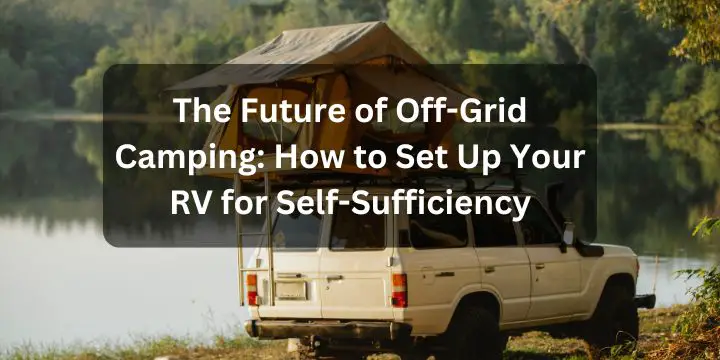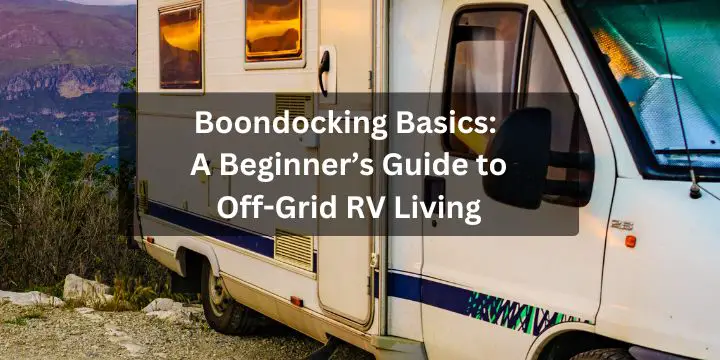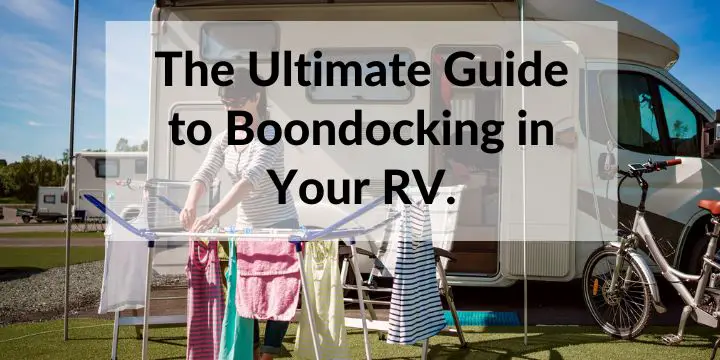
Off-grid camping has become an increasingly popular way for RV enthusiasts to enjoy the great outdoors without the constraints of traditional campgrounds.
By disconnecting from the grid, travelers can find solitude in nature, immerse themselves in remote locations, and enjoy the freedom that comes with self-sufficiency. But making the leap into off-grid RV living requires some preparation. In this blog post, we will explore how you can set up your RV for self-sufficiency in 2025 and beyond, including essential technologies, practical tips, and must-have gear.
1. Understanding Off-Grid Camping and Why It’s Gaining Popularity
Off-grid camping means staying in locations without direct access to utilities like water, electricity, or sewage. For many RVers, this is an ideal way to enjoy a more secluded, peaceful experience away from the noise and crowds of popular campgrounds. It allows travelers to embrace a minimalist lifestyle, rely on renewable resources, and gain a deeper connection to nature.
Off-grid RV camping offers many benefits:
- Freedom: You can camp wherever you want, from remote forests to desert landscapes, without needing to book campsites or follow strict schedules.
- Sustainability: Off-grid camping promotes sustainable living through renewable energy sources like solar power and eco-friendly water filtration systems.
- Cost-effectiveness: By relying on your own resources, such as solar panels and portable power banks, you can save money on campground fees and electricity.
However, off-grid living comes with its own set of challenges. It’s not as simple as driving into the wilderness and parking your RV. To fully enjoy off-grid RVing, you need to plan ahead and equip your RV with the right tools and technologies.
Read More: 10 Best Campgrounds in NC.(Video Guide)
2. Essential Technologies for Off-Grid RV Living
The key to off-grid RV living is the ability to meet your basic needs—power, water, and waste disposal—without relying on external sources. Here are the essential technologies that will allow you to live self-sufficiently in your RV:
a. Solar Power Systems
One of the most important upgrades for off-grid RVing is a reliable solar power system. Solar panels are an excellent way to harness renewable energy and power your RV’s appliances. Modern solar panels have become more efficient and affordable, making them an attractive option for RVers.
To set up a solar power system, you’ll need:
- Solar Panels: Choose high-quality, flexible solar panels that can be mounted on the roof or set up as portable panels outside the RV.
- Inverter: An inverter will convert the DC power from the solar panels into AC power, which is what your appliances require.
- Batteries: To store the power generated by the solar panels, you’ll need a battery bank. Lithium batteries are a popular choice because they are lightweight, long-lasting, and charge efficiently.
- Charge Controller: This device helps regulate the voltage and current from the solar panels to prevent overcharging the batteries.
A well-designed solar power system allows you to run essential appliances like lights, refrigerator, fans, and electronics without worrying about draining your power supply.
Video Overview: Why AEONrv is the Future of Off-Grid Camping
b. Water Filtration and Storage
Water is crucial when camping off the grid. Depending on where you’re camping, access to clean water may not always be guaranteed. Fortunately, there are several ways to filter and store water for your off-grid adventures.
- Portable Water Filters: Invest in a high-quality water filtration system, such as the Berkey water filter, to remove impurities from natural water sources (streams, rivers, lakes). A good filter ensures you have access to clean, safe drinking water.
- Freshwater Tank: Ensure your RV has a freshwater tank with enough capacity to meet your needs. Consider adding an extra tank if you plan to be off the grid for extended periods.
- Greywater and Blackwater Management: Off-grid campers need to manage their greywater (from sinks and showers) and blackwater (from toilets). A portable waste tank or composting toilet can be a great option for sustainable waste management.
Having a reliable water supply and filtration system will help you stay hydrated and keep up with daily hygiene needs without relying on external resources.
c. Waste Disposal Solutions
Proper waste disposal is critical when living off the grid. Many campgrounds have waste disposal systems, but when you’re off the grid, you’ll need to manage it yourself.
- Composting Toilets: A composting toilet allows you to eliminate the need for a traditional blackwater tank. These toilets use natural processes to break down waste, and they don’t require water or chemicals.
- Portable Waste Tanks: If you prefer using a traditional RV toilet, invest in a high-quality portable waste tank. These tanks can be used to store waste until you reach a disposal site.
- Greywater Filtration: Installing a greywater filtration system in your RV can help treat water from sinks and showers, making it safe for disposal or even reuse.
By using environmentally-friendly waste disposal systems, you reduce your impact on the natural surroundings and practice sustainable living while off-grid.
Read More: The Top 10 RV Innovations to Look Out for in 2025


